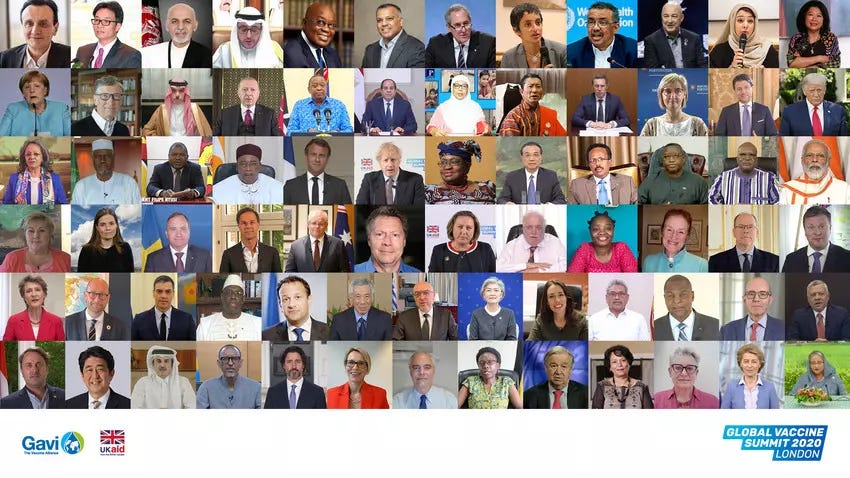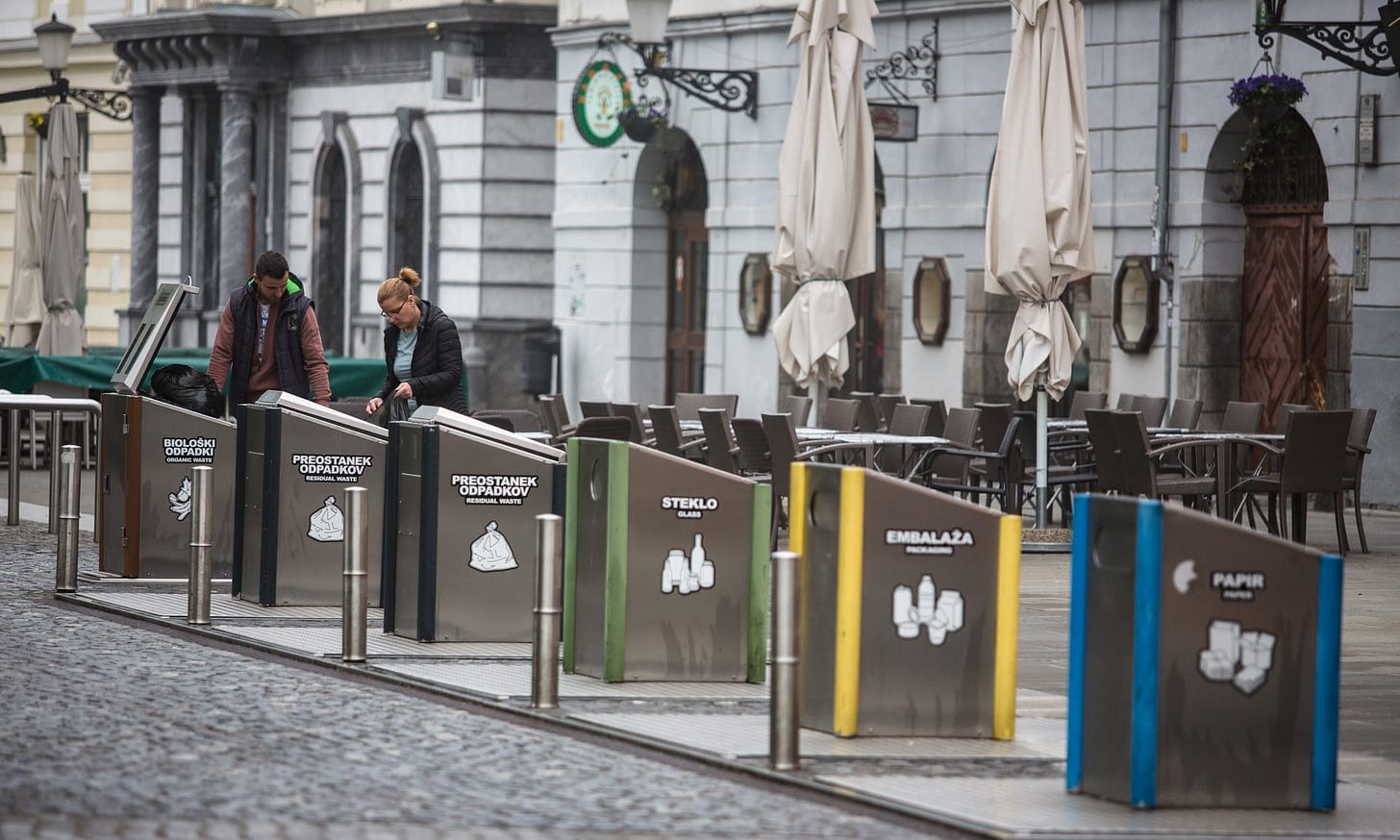When you picture a journalist, what comes to mind? Perhaps it’s the lone investigative reporter, recorder in hand, poking their nose into places they’re not welcome, speaking truth to power. The hard-boiled, chain-smoking editor whose dim view of human nature is matched only by their unflappability in a crisis. Or maybe it’s the brave photojournalist, dodging bullets in Aleppo or taking blows from batons in Chicago, laser-focused on getting that picture worth a thousand words.
These are some of the most enduring, and successful cross-cultural archetypes from the 20th century, recognisable to most people on the planet in some form or the other. In part that’s thanks to Hollywood, but it’s also because journalists themselves have always been happy to play along. The popular image of journalism has always been a bit noir, and well, noir is always going to be cool.
The reality is far more prosaic. Journalists aren’t caricatures - they’re people. They’ve got debt, kids that wake them up way too early, social media addictions and a pair of jeans that don’t quite fit. Forget any fantasies you might have of a bustling newsroom with telephones ringing off the hook and opinion columnists nervously chewing pencils. Those days are long gone. Most of the stuff you’re reading and watching was written or produced by someone who’s also sitting on their own in front of a screen, working from home, freaking out about what’s happening in the world and frankly, doing a horrible job at maintaining any semblance of balance.
This is something worth remembering the next time you consume any news. The famed journalistic objectivity of old is, just like the newsrooms, a relic of the past. Journalists still like to tell themselves that story because it’s tied up with their romantic view of the industry. For better or worse though, there’s very little evidence of that in the modern media landscape, which rewards provocative personalities, or those who are the best cheerleaders for their particular political tribe. As Naval Ravikant said in a recent tweet:
Journalists aren't neutral - they're the cavalry in the culture wars.
— Naval (@naval) June 23, 2020
Those journalists still standing after a decade of industry layoffs are the elite: battle-hardened warriors with millions of keystrokes under their belt, who can engage on a daily basis with all the world’s emergencies in near real time, and consistently produce well-written, hard-hitting opinions about all of it. They’re amazing. They gallop into the fray, lances down, and we all wait breathlessly to hear their account of the latest skirmish. While we can admire what they do, and be grateful to them for taking on the slings and arrows, we shouldn’t get sucked in either.
Our worldviews are being disproportionately influenced by people who spend all day arguing with their enemies (literal and perceived) on Twitter. Not surprisingly, they’re cynical and angry - but that doesn’t mean we should let their PTSD rub off on us. If you don’t have that kind of mental armour, then it’s okay to take a break from the frontlines. Let the cavalry take on the statues and the lies and the masks and the tracing apps. You don’t need to join them every day. It’s okay to just check in occasionally.
That’s what we’ve been doing over the past month, and it’s why you haven’t received anything from us for a while. We took some time to have a long overdue conversation about our future plans for this newsletter - we’ll have some more information on that in another edition - and also to get some other projects across the line. That included a new talk on what Harvard Business Review calls ‘the most important business skill for the 21st century’ (here it is on Youtube) plus the delivery of an online MBA (here are the lectures on AI and machine learning, 3D printing and electric vehicles if you’re interested).
It’s been good to have a break, but we’re also glad to be back. Speaking of which, how about some news?
Good news you might not have heard about
Renewables have toppled coal in energy generation in the US for the first time since 1885, the year that Mark Twain published The Adventures of Huckleberry Finn and America’s first skyscraper was erected in Chicago. EIA
Denmark’s government has approved a new climate plan quadrupling total offshore wind energy capacity in the next decade, and including the construction of two titanic offshore ‘wind energy islands.’ KEFM
In the last three weeks, the world’s one-millionth public electric vehicle outlet was installed, Germany made it mandatory for all gas stations to include electric chargers, and the EU committed to one million public chargers by 2025.
New Zealand will provide free sanitary products in schools across the country in an effort to tackle period poverty - where girls and women are unable to afford or access sufficient menstrual hygiene products. CNN
The GAVI vaccines alliance has raised $8.8 billion to fund programmes until 2025, exceeded its target of $7.4 billion. This will help immunise 300 million more children against measles, polio and diphtheria. Reuters

More on vaccines: an agreement has been reached that lowers the price of pneumococcal conjugate vaccines from $3.50 to $2.00, resulting in millions of dollars in savings for both GAVI and lower income countries’ vaccine budgets. UNICEF
Lawmakers in Gabon have voted to decriminalise homosexuality, reversing a 2019 law. Sylvia Bongo, Gabon's First Lady, said parliament had “restored a fundamental human right: that of loving, freely, without being condemned.” Thomson Reuters
Just as a brutal killing in the US has sparked a national change in attitudes towards race, so has one in Iran, challenging traditions that have long devalued the lives and rights of women and children. Following the murder of Romina Ashrafi, lawmakers have approved a law to criminalise child abuse and neglect, and are considering another criminalising sexual and physical abuse of women. CS Monitor
The Ashaninka people of the Amazon have won a decades long court battle against the forestry industry, setting a precedent that will “define hundreds of thousands of cases on environmental crimes in Brazil.” MPF
In 2005, all the waste from Ljubljana, Slovenia’s capital, went to landfill. Today 68% of its waste is recycled, and its landfill receives almost 80% less rubbish, putting it at the top of Europe’s recycling leaderboard. Guardian

China is increasing environmental funding to $57 billion this year, up by almost 10% from 2019. This includes a national green development fund, and major new conservation programs in the Yangtze and Yellow river basins. Reuters
China has also removed dogs from the list of animals that can be treated as livestock. While this hasn’t stopped the notorious Yulin dog festival, in the long run it effectively ends the sale of live dogs for food and fur. SMH
The Dutch parliament has voted to permanently close the mink fur farms that were shut down following outbreaks of COVID-19, and will close all other remaining farms by the end of the year. Sentient Media
More than 45 transportation and energy companies, as well as dozens of private landowners, have agreed to create or maintain monarch butterfly habitats along ‘rights-of-way’ corridors across the United States. Mongabay
The European Commission is seeking to halve the use of ‘high-risk’ chemical pesticides by 2030 to halt the decline of pollinators. Reuters
Ethiopia planted four billion tree seedlings last year (84% survived). This year, led by PM Abiy Ahmed, more than 20 million people will plant five billion seedlings as part of the country’s Green Legacy Challenge. Quartz
We can instill many +ve values in children early on, including an outlook for environmental preservation, so they form a better r/ship with nature. My family & I call upon all #Ethiopians to plant their #GreenLegacy at the household level, observing #COVID19 prevention measures. pic.twitter.com/g9LXqoHlI5
— Abiy Ahmed Ali 🇪🇹 (@AbiyAhmedAli) June 6, 2020
How’s that for a little 21st century leadership?
Indistinguishable from magic
Archaeologists have uncovered an enormous, 3,000 year old Mayan platform on the border of Mexico and Guatemala. It’s 10 meters tall and 1.4 kilometres long, making it by far the largest and oldest structure of its kind. Nat Geo
Honeywell officially has the most powerful quantum computer in the world. Who would have guessed? Using electric fields to levitate atoms is something industrial giants do better than tech giants. CNet
Industrial engineers have developed a highly porous sponge that can absorb more than 30 times its weight in oil, and are now talking to the US Coast Guard and ocean conservation groups about using it for oil spills. Forbes
Researchers have successfully taught surgical robots to make sutures by watching Youtube. The team needed 78 instructional medical videos to train its AI engine to perform the procedure. TechXplore
A game-changing imaging technique called cryo-electron microscopy has for the first time, discerned individual atoms in a protein. “There’s really nothing to break anymore - this was the last resolution barrier.” Nature
Scientists have created functioning livers out of human skin cells, and successfully transplanted them into rats, proving that it’s now possible to make a whole, functional organ from a single cell. Inverse
Two people with beta thalassaemia and one with sickle cell no longer require transfusions after their bone marrow was edited with CRISPR. Eight years after its invention, it’s finally out of the lab, and into therapeutics. New Scientist
Off the beaten track in the dark forest
Did you know that humans used to be an endangered species? Roughly 1.2 million years ago, our numbers dropped to around 20,000, lower than the number of chimpanzees or gorillas today. That’s some comeback. Sapiens
MIT’s list of the world’s top innovators under the age of 35 is an annual highlight. Personal favourites: Bo Li and her techniques for fooling facial recognition algorithms, and Mohamed Dhaouafi and his artificial limbs. MIT
Amazing story about how Indian authorities manage the biggest festival on the planet, with crowds of up to 50 million people a day. Glastonbury would be a tiny blip in this place. Rest of World (oh, and great new publication too).
Quanta Magazine have compiled a “surprisingly simple, absurdly ambitious and necessarily incomplete” visual map of mathematics as practised by mathematicians. Approved by Tane’s Dad, the smartest maths geek we know.
Forget 1,000 true fans - how about 100? Prepare to hear a lot more about the passion economy over the next few years. a16z
Karl Schroeder has the best explanation for Fermi’s Paradox since Cixin Liu:
Any sufficiently advanced technology is indistinguishable from Nature. Either advanced alien civilisations don't exist, or we can't see them because their machines have reached the thermodynamic equilibria of their environment.
One thing we did keep up with was #BLM. Our three favourite moments were discovering Angela Davis (check out these interviews from 1971 and 2020, almost fifty years apart), this article from an evangelical Christian right-winger, and the moment a Harvard professor took over one of the most followed Instagram accounts in the world to deliver ten mini-lectures on race.

OK we are done here. Thanks for your patience over the last few weeks. Regular service now resumed. Much love,
FC HQ






